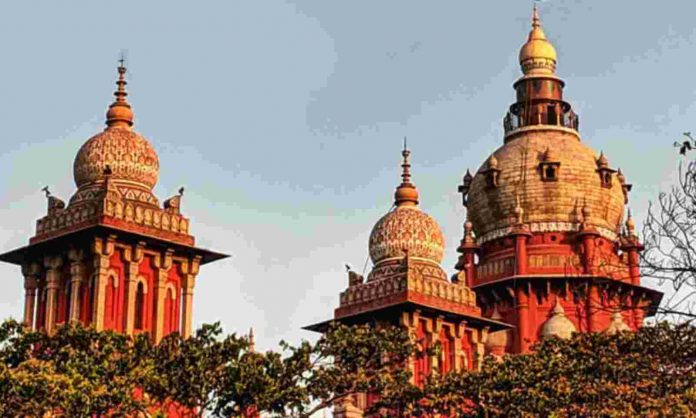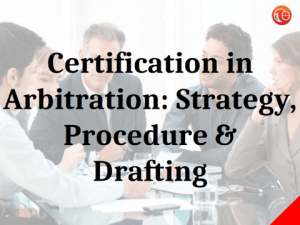
This article has been written by Shephali Jha, pursuing a Certificate Course in Arbitration: Strategy, Procedure and Drafting from LawSikho.
Table of Contents
Introduction
The High Court of Judicature at Madras has exercised the powers conferred by Section 82 of the Arbitration and Conciliation Act, 1996 and made a set of rules called the Madras High Court (Arbitration) Rules, 2020. This was published in the Official Gazette of the State of Tamil Nadu on 17.03.2021 and came into force on the same date before the courts in Tamil Nadu. In the case of Sivesh Varshan v. Madras High Court & Ors. (WP 10979/2021)a Writ Petition had been filed before the Hon’ble Madras High Court challenging that these rules are ultra vires of Arbitration and Conciliation Act, 1996 as well as Commercial Courts Act, 2015 and void ab initio by Mr. Siveshvarshan.
Background
Mr. Siveshvarshan was the respondent in a case arising out of Ad-hoc arbitration proceedings and was filed by the legal heirs of Mr.Pandian. Petitioner was a deceased borrower and his legal representatives did not comply with provisions related to pleadings of Civil Procedure Code, 1908 as amended by the schedule to Commercial courts Act, 2015. The petitioners, in that case though, have admitted to the facts of payment and signature in the arbitration agreement but disputed contents of the arbitration agreement citing the predate of the arbitration agreement stamp paper bears. The deceased borrower had settled Mr. Siveshvarshan’s claim amount by cheque and was facing a criminal trial for its dishonor. The Learned District Judge of Karur did not execute the interim order under section 17 of the Arbitration and Conciliation Act dated 17.06.2020 and the petitioners alienated the property. Another application filed by Mr. Siveshvarshan is pending before the court.
When Mr. Siveshvarshan approached the district court, he was given oral citing of Madras High Court (Arbitration) Rules, 2020, and would have to pay an award amount under Rule 7 of the Civil Procedure Code as applicable in Commercial Courts Act. Therefore, Mr. Siveshvarshan has filed a writ petition under Article 226 of the Indian Constitution. 
Challenges to the validity of Madras High Court (Arbitration) Rules, 2020
- Section 82 of the Arbitration and Conciliation Act with respect to Information Technology Act, 2000
Section 82 of the Arbitration and Conciliation Act states that the High court may make rules consistent with the Act with respect to the proceedings before the courts. This act was passed according to the legislative power of the Union government under Union List’s Entry 13 of the Schedule VII of the Constitution of India. The Information Technology Act, 2000, was also passed according to the above-mentioned provisions giving the power to the Union of India as the appropriate government for making appropriate rules for the purpose of that Act. There is no power for further delegation of powers of any appropriate government under the said act and the only competent authority to prescribe procedure is the Union of India. Section 29(5) of the Arbitration and Conciliation Act can be invoked to secure the obedience of order of the Tribunal, by the way of contempt of the Tribunal under the Contempt of Courts Act. However, the impugned Rules do not contain any procedure to be followed in such cases.
2. Commercial Courts Act, 2015
Section 10 of the Commercial Courts Act has indicated the intentions of the parliament to make commercial courts exclusive to commercial arbitrations. Section 15 of the same act directs for transferring of all Arbitration proceedings to commercial courts and adherence of procedure according to Commercial Courts Act. All the district courts are the Commercial Courts but they have started treating arbitration petitions as any other petition. The Madras High Court (Arbitration) Rules, 2020 is inconsistent with Commercial Courts Act, 2015. Section 21 of the Commercial Courts Act, 2015 gives the powers for the provisions of the act and no subordinate rules can be made which are inconsistent with the said act.
3. Civil Procedure Code, 1908
The procedure adopted by the Madras High Court under its rules does not confer any right on a successful party who is seeking the termination of proceedings and is not according to the XIIIA of Civil Procedure Code. The Madras High Court is empowered to make rules under 122 of the Civil Procedure Code but necessary permission has not been taken from the Government of State under 126 of the Civil Procedure Code. No award or an executable order can be given by the arbitrator under Section 36 of the Civil Procedure Code as his position has been reduced to functions Officio because of Madras High Court (Arbitration) Rules, 2020.
4. Arbitration and Conciliation Act, 1996
The proceeding under Section 34 and 37 of this Act can be frustrated and deprive the value of award because of these rules. Ultimately this procedure under Madras High Court (Arbitration) Rules, 2020 can undermine the Rule of Law. Rule 12 (IV) of the Madras High Court (Arbitration) Rules, 2020 states that the transfer of arbitral proceedings be made to the additional district judge and this is inconsistent with Section 2(e) of the Arbitration and Conciliation Act, 1996. The additional district judge is not the principal court of original jurisdiction. Under 8(IV) and (V) of the Madras High Court (Arbitration) Rules, 2020, provides the summoning of evidence from the Arbitral Tribunal. Rule 12((IV) of said Rules is not consistent with Section 2(e) Arbitration and conciliation Act 1996 as the same contemplates for the transfer of arbitral proceedings to the additional district judge who is not a principal court of original jurisdiction as per definition of a district judge as occurring in Section 3(17) General clause Act or where the commercial Courts have been constituted, the commercial disputes related Arbitration proceedings can only be transferred to the notified commercial Courts under the Commercial Courts Act.
- Information Technology Act, 2000
Rule 6 of Order XI of the Commercial Courts Act relates to electronic records of arbitral proceedings. The provision owes its existence to the provisions of the Information Technology Act, 2000 which designates the Union of India as the appropriate government for making appropriate rules for the purpose of that Act.
Relevant case laws
Alka Chandevar v. Shamshul Israr Khan
The Supreme Court held that Section 29(5) of the Arbitration and Conciliation Act, 1996, can be invoked to secure the compliance and execution of the order of the Arbitral Tribunal by passing a contempt of the Tribunal under the Contempt of Courts Act as in the case of any proceedings before the court. The Madras High Court (Arbitration) Rules, 2020 gives no procedure to be followed if amenability has been made according to the Arbitral Tribunal rather can give a rise to indeterminate issues.
Tamil Nadu v. Krishna Murthy
The Court held that subordinate legislative rules can be challenged if they are inconsistent with any of the enactment or law passed by the Government of India. The Madras High Court (Arbitration) Rules, 2020 are inconsistent with the Commercial Court Act, 2015.
Conclusion
The above writ petition was accepted on 2nd May 2021 and has been set for hearing on 2nd July 2021 by a division bench consisting of Chief Justice Sanjib Banerjee and Justice Senthilkumar Ramamoorthy. If the writ petition succeeds then an interim order will be passed to stay the operations of Madras High Court (Arbitration) Rules, 2020 as well as direct the Commercial Courts of Tamil Nadu to follow the procedure envisaged in the Commercial Courts Act, 2015. The Madras High Court (Arbitration) Rules, 2020 will be void ab initio if the writ petition brought by Mr. Siveshvarshan before the Madras High Court will be passed. The Arbitration and Conciliation Act, 1996, itself is a very comprehended procedural law for all the disputes arising out of an arbitration agreement. Such rules can hinder and take away the credibility of Alternative Dispute Resolution.
Students of Lawsikho courses regularly produce writing assignments and work on practical exercises as a part of their coursework and develop themselves in real-life practical skills.
LawSikho has created a telegram group for exchanging legal knowledge, referrals, and various opportunities. You can click on this link and join:
 Serato DJ Crack 2025Serato DJ PRO Crack
Serato DJ Crack 2025Serato DJ PRO Crack








 Allow notifications
Allow notifications


